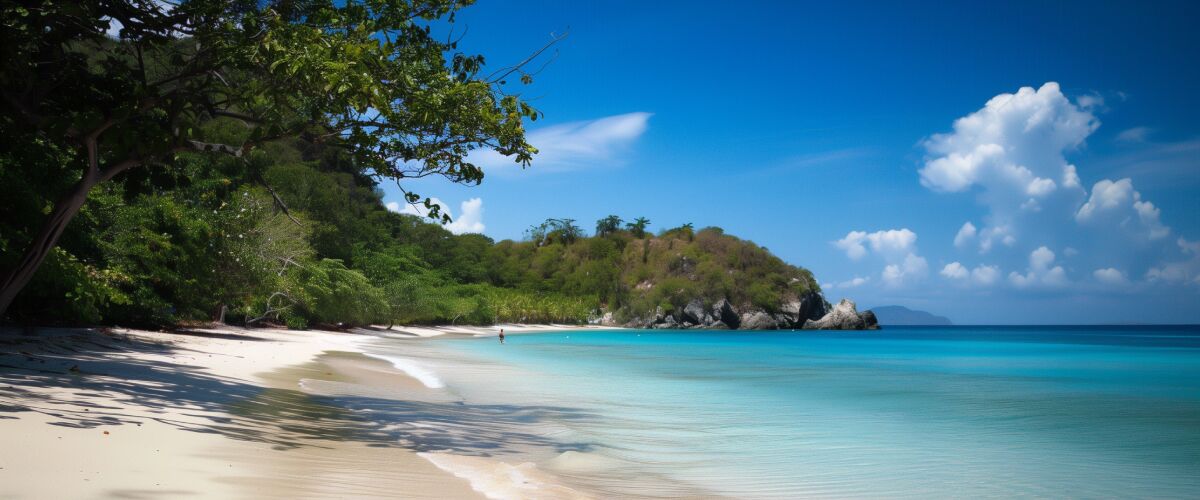Shift in US Policy: Caribbean CBI Programs Legit
After nearly ten years of criticizing the citizenship by investment (CBI) programs of five Caribbean nations, the US government has finally acknowledged that these initiatives offer a much-needed and legitimate source of revenue for these countries.
In February 2023, delegations from five Caribbean CBI jurisdictions led by their respective prime ministers met with US officials from the Treasury and State Departments. The meeting concluded that:
Caribbean CBI programs provide a legitimate service and have assisted in the survival of the participating economies by providing revenues, particularly considering the existential threat to our vulnerable small island states – emanating from the climate emergency – and the onslaught of recent adverse external shocks, including the ongoing war in Ukraine.
Free Wealth Protection Insights
Enter your email below to receive our weekly briefings on better ways to preserve your wealth, legally reduce your tax bill, and better protect what you’ve worked hard to build.
The Nestmann Group does not sell, rent or otherwise share your private details with third parties. Learn more about our privacy policy here.
PLEASE NOTE: This e-series will be delivered to you via email. You should receive your first message minutes after joining us. By signing up for this course, you’ll also start to receive our popular weekly publication, Nestmann’s Notes. If you don’t want to receive that, simply email or click the unsubscribe link found in every message.
This agreement marks the first time the US has acknowledged that CBI programs play a valid role in the economies of these five jurisdictions: Antigua & Barbuda, the Commonwealth of Dominica, Grenada, the Federation of Saint Kitts & Nevis, and Saint Lucia.
Overcoming Past Vilification
It’s only been nine years since Uncle Sam launched a fusillade against the Saint Kitts & Nevis CBI program. In 2014, the Treasury’s Financial Crime Enforcement Network (FinCEN) issued an advisory warning banks worldwide to apply special scrutiny to individuals identifying themselves as citizens of St. Kitts & Nevis.
This wasn’t the first time Saint Kitts & Nevis came under scrutiny from its powerful northern neighbor. In 2000, FinCEN warned US financial institutions to give:
Enhanced scrutiny to all financial transactions originating in or routed to or through the Federation of Saint Kitts and Nevis, or involving entities organized or domiciled, or persons maintaining accounts, in Saint Kitts and Nevis.
Addressing Concerns and Hypocrisy
At that time, FinCEN was concerned because an obscure non-governmental organization, the Financial Action Task Force (FATF), had identified Saint Kitts & Nevis as being “non-cooperative in the fight against money laundering.”
Unsurprisingly, Saint Kitts & Nevis didn’t appreciate being singled out as a haven for financial criminality. After all, every serious study of money laundering had concluded that most of it is conducted in the world’s largest financial centers: New York City and London.
Despite the hypocrisy, Saint Kitts & Nevis enacted stringent anti-laundering laws later that year. In response, not long after FinCEN issued its 2000 advisory, it was withdrawn.
A Gradual Warming
It took much longer for the US to warm to the CBI programs of Saint Kitts & Nevis and its neighbors. In the years following the 2014 advisory, US officials stationed in the Caribbean repeatedly warned that despite economic challenges caused by catastrophic hurricanes, Caribbean states had to be cautious with their CBI programs.
However, change seemed imminent in 2016 when the International Monetary Fund credited Saint Kitts & Nevis for the “dramatic improvements” it had made to its CBI program.
USA Recognizes CBI Programs as Legit: Reasons for the Shift
But it still took another seven years for the turnaround to be complete. One cited reason was the “external shock” resulting from the war in Ukraine. However, an equally or more important reason for the US’ shift may be the influence of the People’s Republic of China.
The China Factor
In the last 20 years, China has made remarkable inroads in the Caribbean. For instance, China has persuaded Dominica and Grenada to establish diplomatic relations with it, previously recognizing Taiwan, which China considers an integral part of its territory.
China has also rewarded these countries with substantial amounts of foreign aid. For instance, much of Dominica’s road system had to be rebuilt after being destroyed by Hurricane Maria in 2017. Chinese money paid for a significant portion of the repairs. China also built a sports stadium and the presidential palace in Dominica’s capital, Roseau. Recently, a Chinese official announced that the country was “willing and ready“ to assist Caribbean countries in transitioning to renewable energy.
The threat of Chinese influence in America’s backyard, in our view, was the unspoken driver in the decision to recognize Caribbean CBI programs as legitimate. This decision will give these programs staying power in the years ahead.
Recommended Reading
- Dominica Citizenship by Investment: Is it Right for You?
- St. Kitts and Nevis Citizenship by Investment: Is it Right for You?
- Cheapest Citizenship by Investment Programs Right Now
- How to Get a Second Passport: 7 Legal Ways
Need Help?
Since 1984, we’ve helped more than 15,000 customers and clients successfully build wealth protection plans and internationalize their lives. Second citizenships and passports play a big part in that, along with expatriation.
If you’re thinking about a second passport and you’d like an unbiased perspective on the various options, please schedule an introductory consultation with a Nestmann Associate. We’ll help you determine whether a second passport is right for you, and whether we can help you legally get one. Click here to request an introductory consultation.













